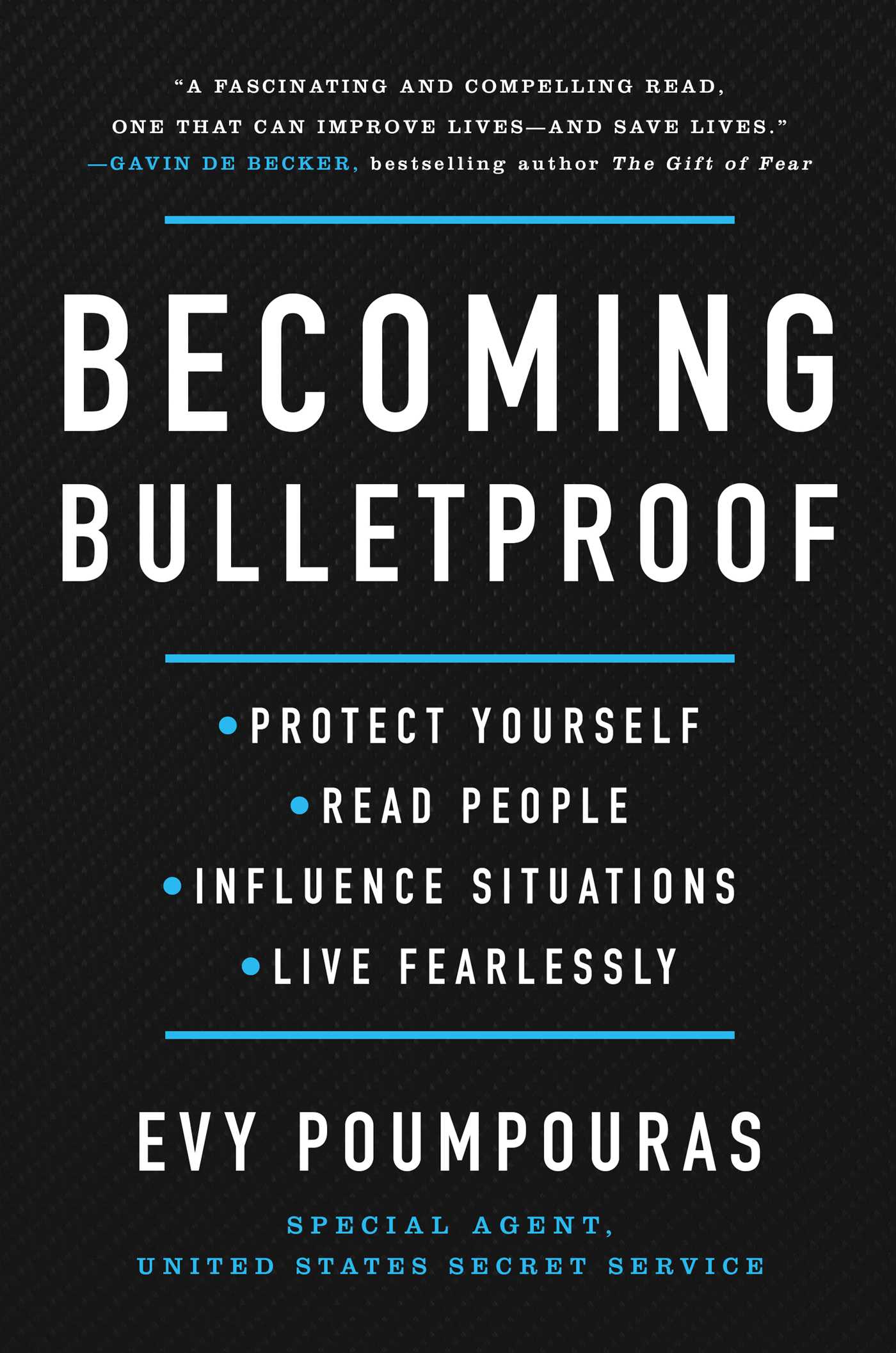
Becoming Bulletproof: Protect Yourself, Read People, Influence Situations, and Live Fearlessly
Evy Poumpouras
About the Author

Evy Poumpouras
Questions & Answers
The author defines fear as a natural response to perceived threats, but emphasizes that it can be managed and even harnessed for personal growth. Fear is seen as a relative concept, varying with the situation and individual's mindset. To manage fear, the author suggests several strategies:
- Mental Armor: Building resilience through mental training and exposure to controlled stressors.
- Situational Awareness: Being aware of one's surroundings and potential threats, akin to the Secret Service's "shift agent" mindset.
- Controlled Exposure: Gradually exposing oneself to feared situations to build tolerance and resilience.
- Avoiding Hot Zones: Identifying and avoiding environments or relationships that may provoke fear or negative emotions.
- Active Listening and Empathy: Understanding others' perspectives and emotions to build rapport and influence.
- Influence and Persuasion: Using communication strategies to navigate conflicts and influence outcomes.
- Self-Reflection and Acceptance: Understanding one's own fears and accepting them as part of life, rather than trying to eliminate them entirely.
By implementing these strategies, the author argues that individuals can become "bulletproof," capable of facing life's challenges with confidence and resilience.
The "F3 response" refers to the three instinctual reactions humans have to perceived threats: Fight, Flight, and Freeze. When faced with danger, the body automatically prepares to either confront the threat, escape from it, or freeze in place. This response is crucial for survival but can also lead to negative outcomes if not managed effectively.
In personal protection and resilience, understanding and managing the F3 response is vital. It helps individuals recognize their natural reactions to stress and develop strategies to control these responses. By doing so, they can remain calm and composed in challenging situations, make rational decisions, and recover quickly from adversity. This is essential for both physical safety and mental well-being, enabling individuals to protect themselves and others, and build resilience against life's challenges.
The book integrates real-life experiences and case studies by drawing upon the author's personal journey as a Secret Service agent. It uses these experiences to illustrate concepts like fear management, self-protection, and influence. For example, the author recounts his childhood in a Greek family, his training at the Secret Service Academy, and his encounters with high-profile targets. He shares specific incidents, such as a simulated helicopter crash training exercise and a challenging assignment in the cold, to demonstrate the application of hormesis and mental resilience. Additionally, the book includes case studies from interrogations and investigations, showing how the principles of reading people and influencing others can be effectively used in real-world scenarios. This approach makes the concepts relatable and practical, helping readers understand and apply them in their own lives.
The key elements of mental resilience include accepting reality, understanding the problem, finding meaning, maintaining a powerful mindset, and developing situational awareness. To develop resilience:
- Accept Reality: Acknowledge the situation as it is, rather than idealizing or ignoring it. This helps in focusing on effective solutions.
- Understand the Problem: Analyze the issue to ensure you're addressing the right problem. This involves self-reflection and seeking different perspectives.
- Find Meaning: Look for positive outcomes or lessons in adversity. This can be through volunteering, helping others, or personal growth.
- Maintain a Powerful Mindset: Cultivate a proactive attitude, avoid blaming others, and take ownership of your actions.
- Develop Situational Awareness: Be aware of your surroundings and potential threats. This can prevent problems and help you respond effectively when they arise.
In everyday life, apply these elements by setting realistic goals, practicing mindfulness, seeking support from others, and continuously learning and adapting.
The book encourages readers to become their own heroes by emphasizing the importance of self-awareness, preparation, and taking control of their own safety and well-being. It teaches the value of understanding and managing fear, rather than letting it control one's actions. By harnessing fear and using it as a motivator, readers are encouraged to develop resilience and confidence. The book also emphasizes the significance of personal responsibility, suggesting strategies like building a personal security plan, identifying safe houses, and knowing emergency routes. It advocates for making empowered choices, avoiding negative influences, and seeking meaning in life, even during difficult times. By following these principles, readers are empowered to face challenges head-on and become their own protectors, both for themselves and those they care about.